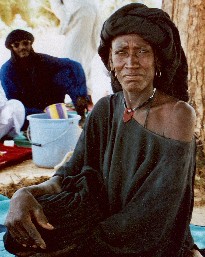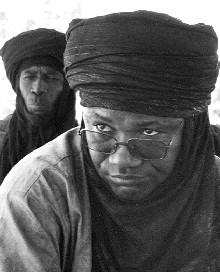|
Niger Labour | Society | Human rights Fighting slavery pays off in Niger
Assibit was born a slave, as were her mother, husband and children. The 50-year-old woman always has had to work without pay all day from early in the morning, preparing food for the master and his family, milking camels, collecting water and firewood, and doing all the household chores. She had to move her master's heavy tent four times a day so he and the mistress remained sitting in the shade.
The true scale of slavery became clear last year, after Timidria carried out extensive research, supported by the UK-based group Anti-Slavery International. In this, the first national survey on slavery, over 11,000 people were interviewed, most of whom were identified as slaves. "The research establishes that a minimum of 43,000 people are in slavery across the country," according to Anti-Slavery. - Slaves are owned and controlled by their masters, receiving a meagre amount of food and a place to sleep in return for their labour, the study found. "The master decides who a slave marries and whether their children go to school. Many of those interviewed in the survey had also been subjected to violence, rape, degrading treatment and threats." Following the publication of the joint research report last year, the Nigerien government amended the Penal Code to define, prohibit and punish slavery with sentences of up to 30 years imprisonment. "This is a great achievement after sustained campaigning by Timidria," according to Anti-Slavery. The UK-based group therefore found that it was time to promote Timidria abroad. It was recently decided that Timidria and its President, Ilguilas Weila, are to receive this year's Anti-Slavery Award, "for their pioneering efforts in the fight against slavery in Niger." Mr Weila is set to receive the award in London at a major ceremony on 3 November. Internationally renowned Sierra Leonean filmmaker, Sorious Samura, is to present the award, according to Sarah Williams from Anti-Slavery. While the award does not include any cash grant, it is aimed at assisting "the recipient's work and to offer some protection in the carrying out of his/her humanitarian work." By staff writer © afrol News - Create an e-mail alert for Niger news - Create an e-mail alert for Labour news - Create an e-mail alert for Society news - Create an e-mail alert for Human rights news
On the Afrol News front page now
|
front page
| news
| countries
| archive
| currencies
| news alerts login
| about afrol News
| contact
| advertise
| español
©
afrol News.
Reproducing or buying afrol News' articles.
You can contact us at mail@afrol.com









